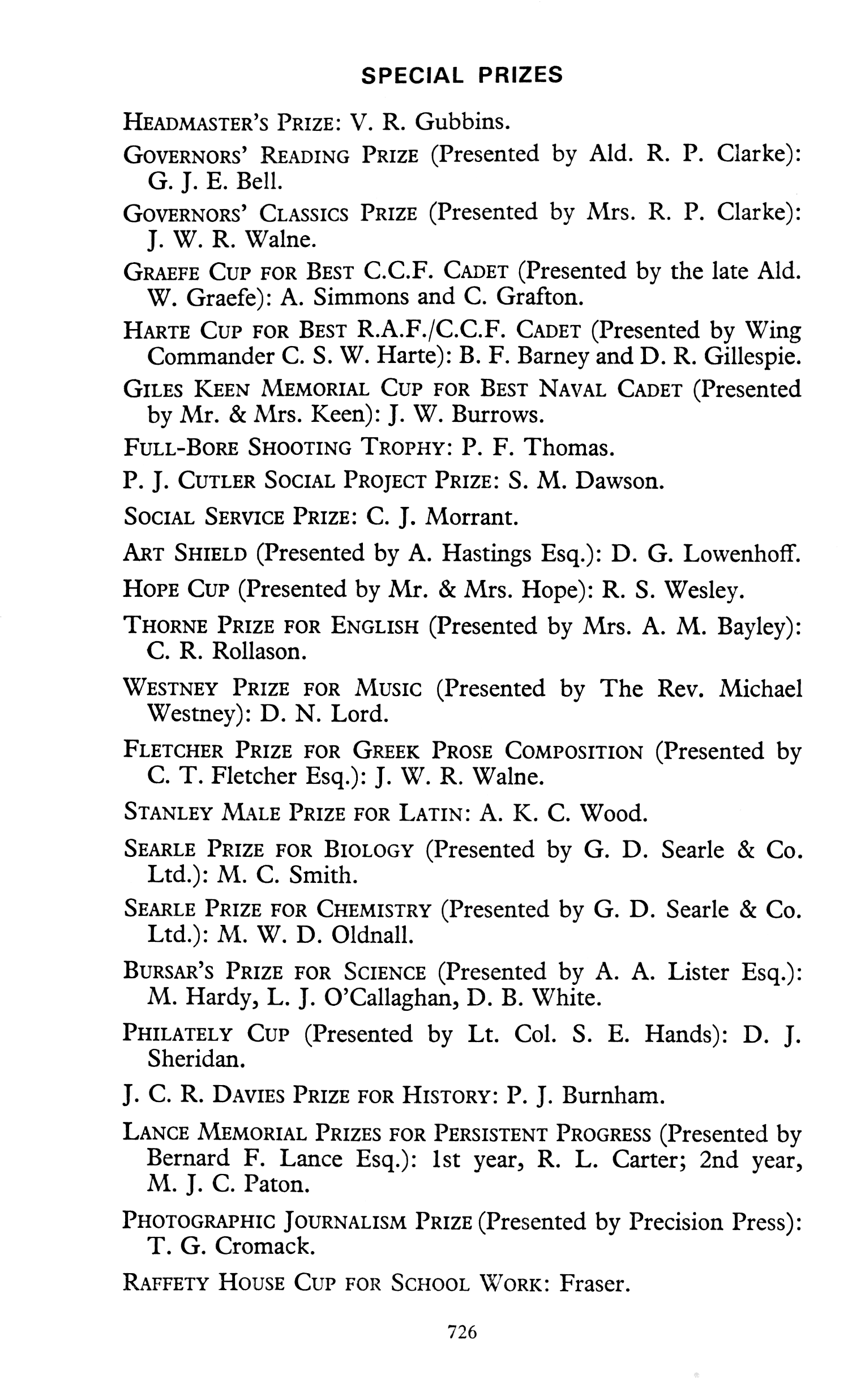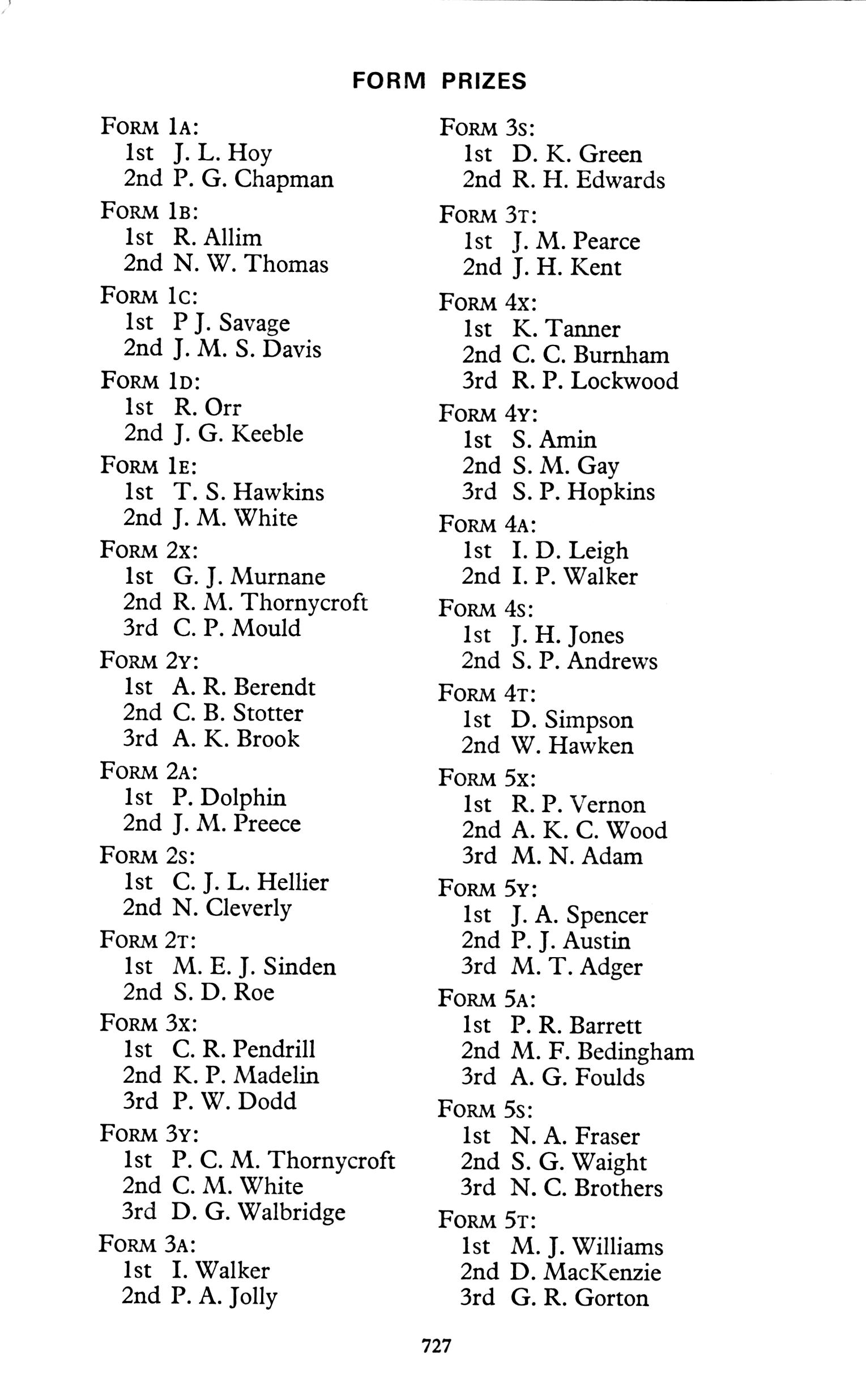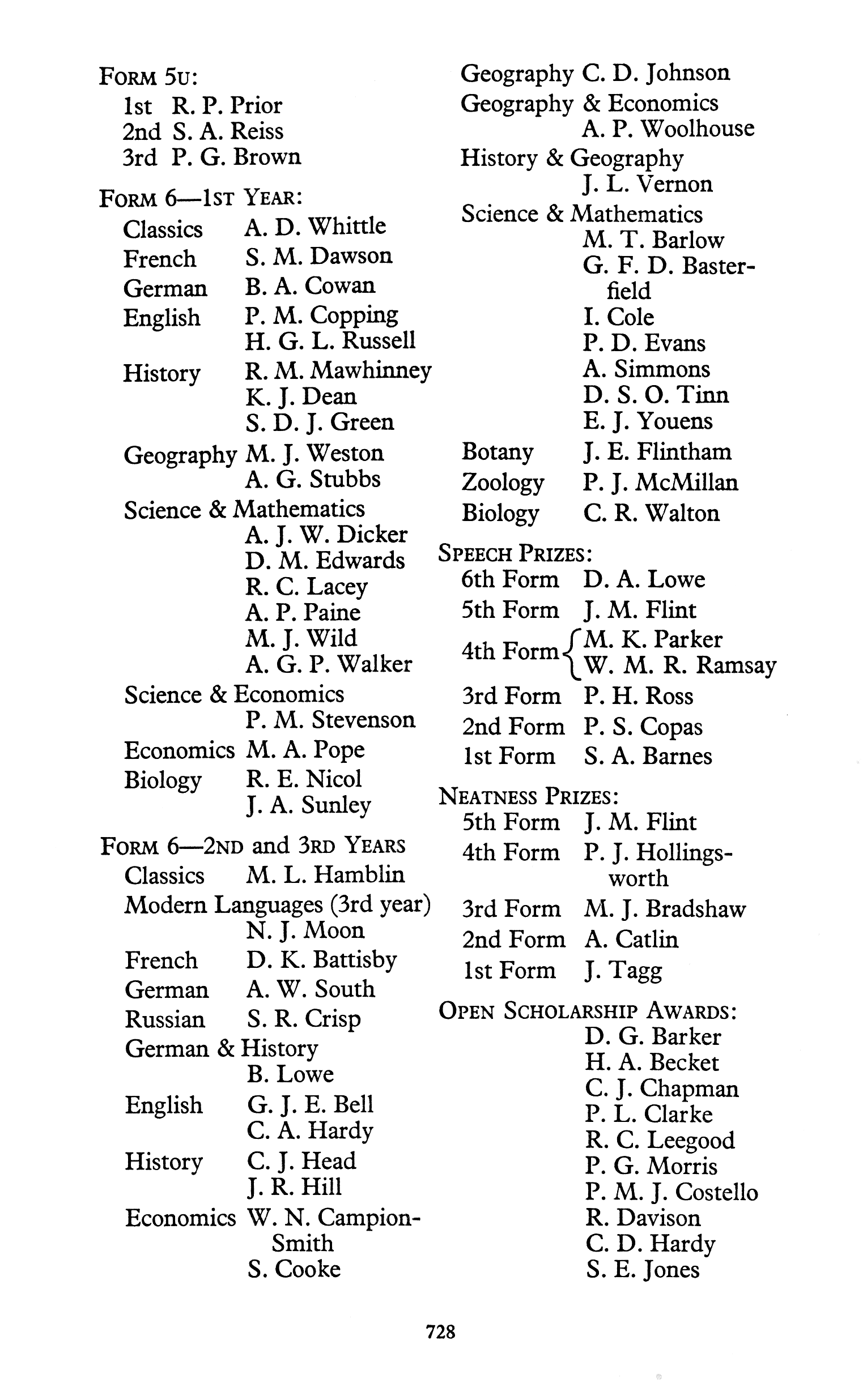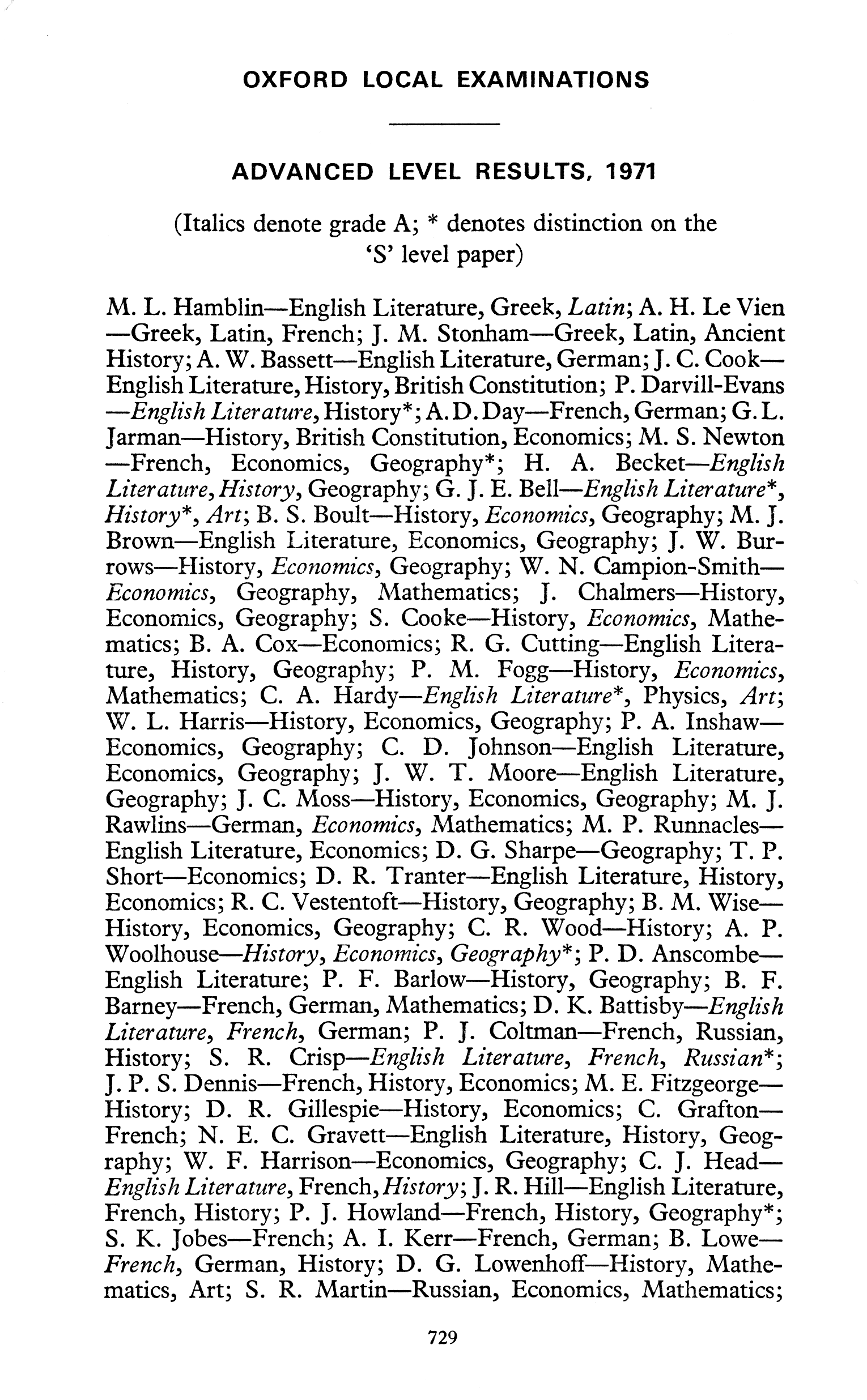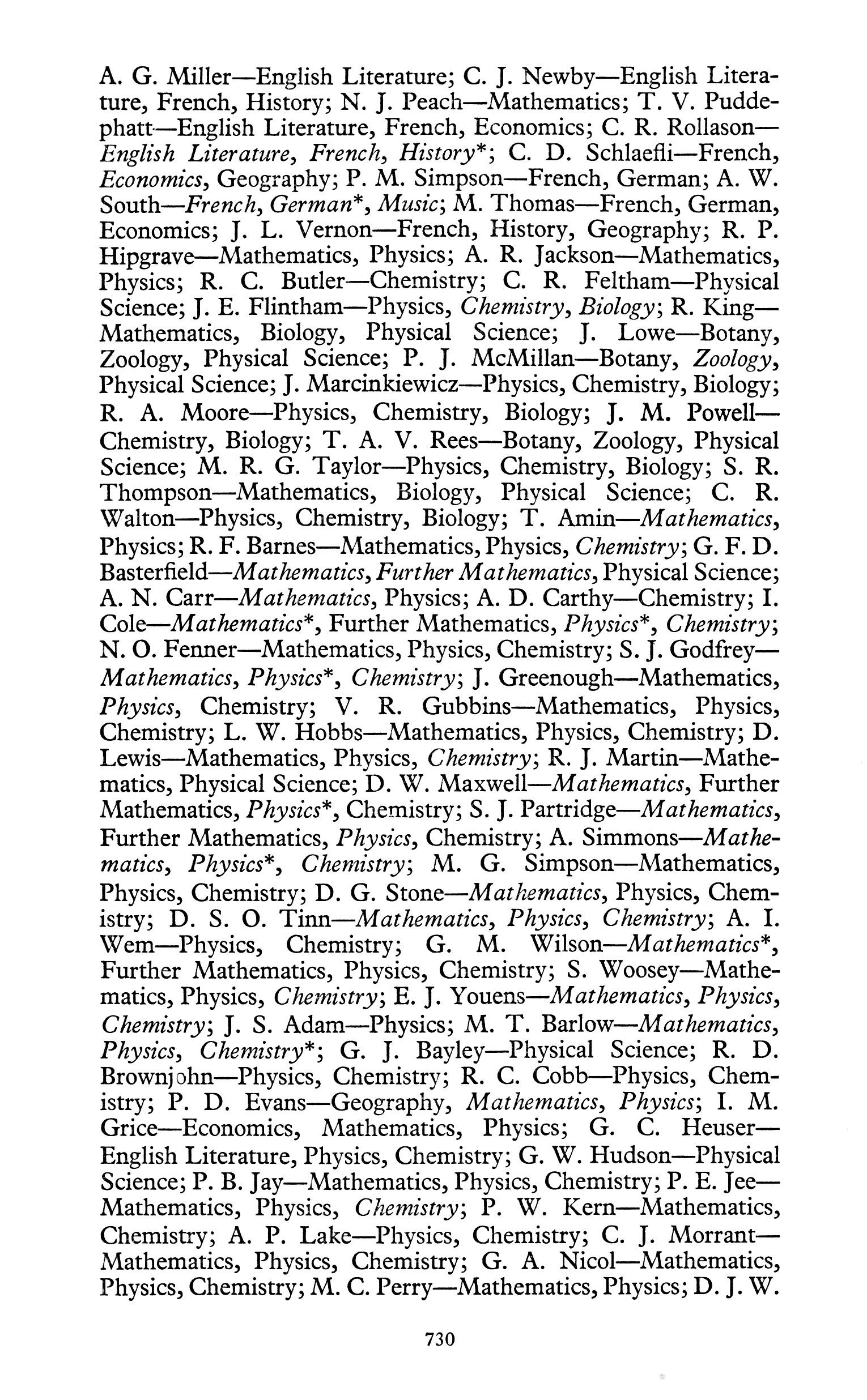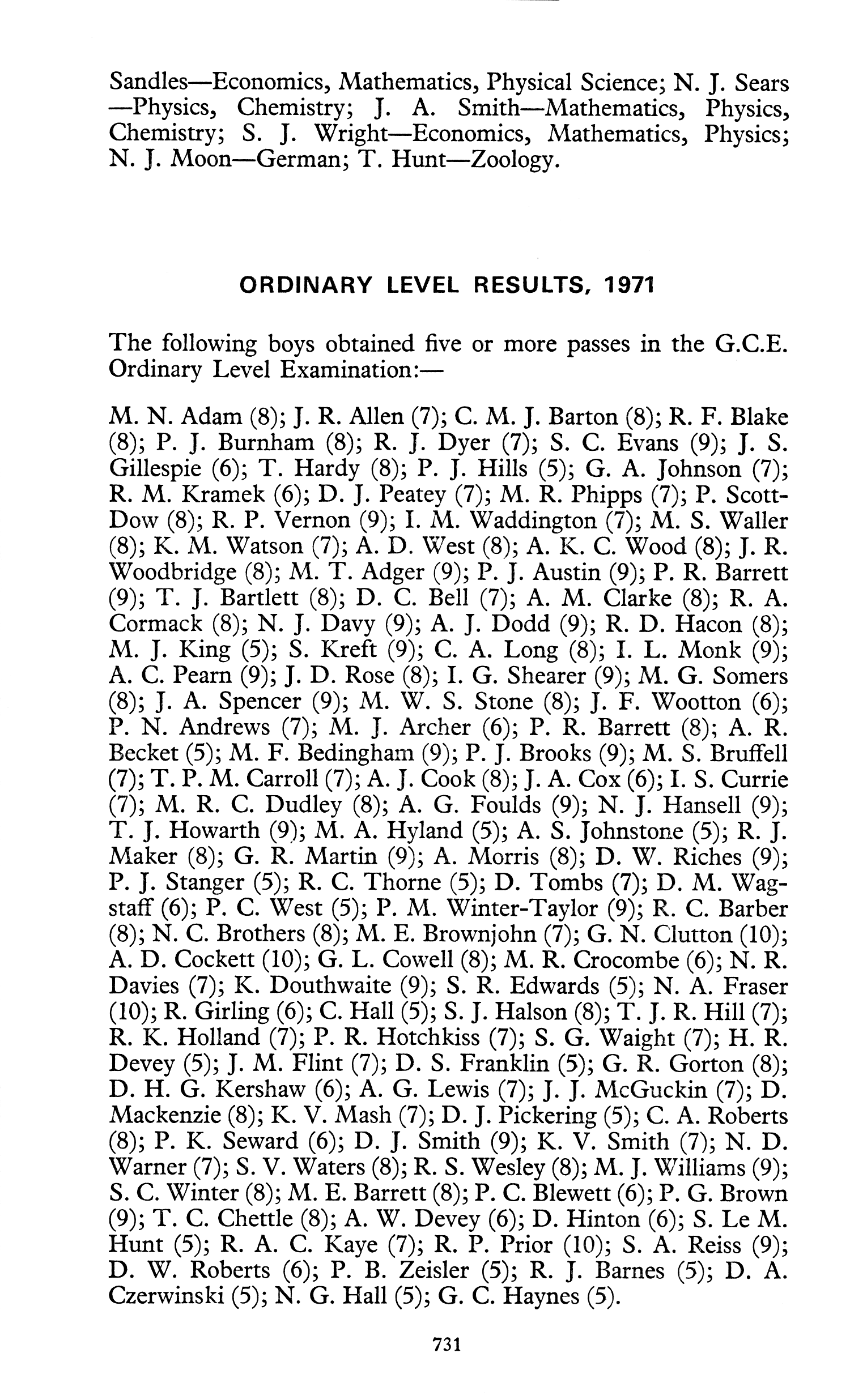
ROYAL GRAMMAR SCHOOL, HIGH WYCOMBE
SPEECH DAY 1971
(I don't have a programme - details taken from the Sept 1971 issue of The Wycombiensian. Details of university entrance for the 1970/71 academic year
appeared in the May 1971 issue of Wycombiensian, a link to which can be found on the Wycombiensian page.
Other Speech Day Programmes
SPEECH DAY 1971Speech Day was hot - damnably hot, and Alderman Clarke mercifully allowed us to remove our coats in the hall. ‘Coats only!’ he cried to some quarters of the audience. The Headmaster, in his report, remarked upon the outstanding academic and sporting successes of the year. He then introduced the principal speaker, Dr. D. M. A. Leggett, Vice-Chancellor of the University of Surrey. The Headmaster explained that when he himself was at Trinity, Dr. Leggett was already a distinguished mathematician there. After the prizegiving, Dr. Leggett began his punchy and vigorously delivered speech by exhorting us to choose an occupation which we should enjoy. He then gave us his formula for a successful life, remembered by the mnemonic REIN. His four guiding qualities were Reliability, Enthusiasm, Imagination (the ability to make the right decisions) and ‘Newton’s Laws’ (the ability to apply to life the law that action and reaction are equal and opposite). Dr. Leggett warned us not to stay in the farmyard but to fly into the sunset, like the eagle in his vigorously told story. We were encouraged to climb as near as possible to the summit of the pyramid. This was the key to personal satisfaction and a successful life. At the commemoration service, the address by the Rev. J. Crisp, Vicar of High Wycombe, was an interesting contrast. Christ, he said, was hated for saying not that the world was evil, but that it was good. ‘And God saw everything that he had made, and behold, it was very good.’ So Christ saw good in publicans and harlots, who were condemned by the Pharisees, whose position may have been high, but whose goodness was superficial. So must we see all that is good in others. Exhibitions were fewer than usual, with the omission of the usual science exhibitions, but there was an interesting innovation: a Stage Exhibition, in which our diligent stage team exhibited relics from school productions. As I can think of none better I shall conclude with the closing words of last year’s report of Speech Day: ‘And so another Speech Day, and not the last, was over.’ A[dam].H[ardy].
|
